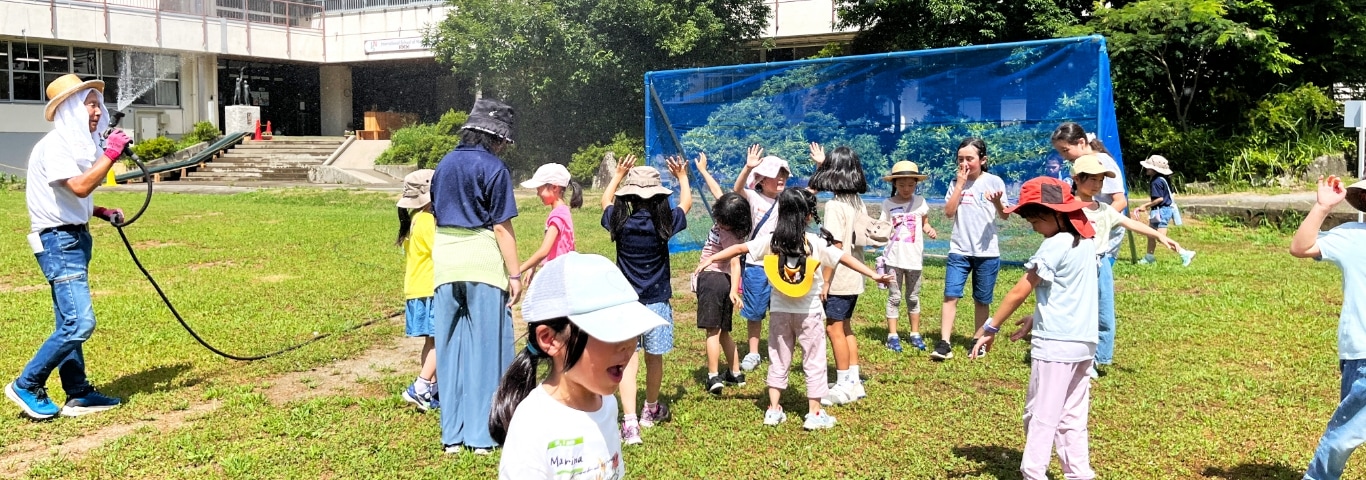11月8日名古屋大学教育学心理学の松本先生とお話をしました。世界一とうたわれるフィンランドの教育を研究し、多くの本を出版されている松本先生です。「全ての学校を見たわけではないので偏見があるかもしれない」と前置きをされて、先生の感覚からすると、「フィンランドの小学校は一般的に世界が知っている感じです」「個性を尊重するのは先生達の中で常識」。中学校になると、生徒はホームルームを持たず、レッスンごとに教室を移るようになるそうです。どのレッスンも鍵がかかった教室のドアを先生が開けて、生徒は中に入ります。
日本とフィンランドの中学生対象アンケート: 自分にとって学校とは? 返答に多かったのは、日本の公立の生徒の場合、「勉強をするところ」「友達とたわいもない話をするところ」「先生と宿題」。フィンランドの中学生に多かったのは「勉強」。日本では学校という空間が ”団体活動をする場である” 意識が高いことに対して、中学校になるとフィンランドでは「学校は個々で勉強をしに来るところ」という風潮がある、という変化に驚きました。その一方でお友達との時間も楽しんでいます。
日本の中学校は比較的静かに授業が進められ受動態の傾向。その一方フィンランドでは授業は騒がしいこともありながら、質問をすると的確な答えが返ってくる、活動が始まると生徒達は一気に集中することが出来る特徴もありました。
フィンランドでは早く終わる授業の後、部活動等はなく、生徒達は帰宅か児童館でコンピュータゲームや卓球などの遊び、又は町中のバーガーショップなどに集まるのが一般的なようです。その結果、アルコール、たばこなどに手を出す機会も増えているそうです。フィンランドの先生達は、日本のごみの落ちていない道に感動したり、生徒達の礼儀正しさ、部活動などの活動を考慮してみたりなど、日本の中学校の在り方を褒めている点も挙げられていました。
フィンランドでは高校進学の選択に、職業訓練の道を歩むことがとても一般的で、半数ほどの生徒達は手に職をつけながら学ぶ選択をしています。この選択に良い点も多いながら、例えば一度社会に出て、2年3年働くと昇格、より責任ある仕事を任せてもらえるケースも生じますね。…という状態でなかなか大学等アカデミックな進路に戻りたくても戻るタイミングがつかみにくくなる可能性もあります。電子工学科のギャップイヤーを利用して、20代の学生がヘルシンキでタクシーの運転手をしながら職業体験をしているという話を聞いたことがあります。効率は良くないかもしれないが、社会経験というかけがえのない財産を手に入れる。一長一短ですね。
個人的な感想は、”団体活動の中で規律に縛られ個性が育ちにくい…選択が少ない” vs ”個性第一…何でもokのような選択肢”という両極端を見た気がします。ISNの生徒達の高い英語力や、プレゼンテーションなどにみられる自信は日本では希少価値。世界に出ても自分の人生を楽しむ道具です。子ども達は、それをどう使うかをみんなで模索していくのですね。文字通り無限の選択肢に対し、”周りの大人が子ども達と話し合いながら選択肢をいくつかに絞って、子ども達はそこから選ぶ” というサポートが現実的、理想的かと思われます。
*******************************************************************
On November 8th, I got the chance to talk to professor Matsumoto, of the Nagoya University pedagogy and psychology department. Mr. Matsumoto has studied the education in Finland and has published many books. According to him, Finland’s education system is based on learning about the world and its differences, which is a basis on which students learn how to be tolerant of differences. During middle and high school, the students don’t have a single homeroom. They are moving between the classrooms each lesson. When the lesson starts, the teacher unlocks the classroom door and the students enter.
A questionnaire was proposed for middle school students in Japan and Finland with the question being “What is school for you?” The students in Japan answered it is a place to “study”, “do work with the teacher” or “quietly talk with friends”. The Finnish students simply answered: “study”. In Japan, a school is a place that organizes activities for the students, but in Finland, students come to school individually with their own will to study. They are also enjoying the time they spend with their friends.
Students in Japanese middle schools are relatively passive and the classrooms are quiet. On the other hand, in Finland, the classes are noisy, but when a teacher asks a question, he gets answered quickly, correctly, and the students are concentrated on the work.
In Finland, there is no club activities after lessons. School finishes early, and it seems that it is common for students to go home or to video game arcades or burger shops with their friends. As a result, there is a bigger number of opportunities for students to get I contact with alcohol and tobacco. The Finnish teachers think highly of Japanese middle schools in terms of there being no garbage on the road, providing additional club activities for students and the students’ politeness.
In Finland, it is common for the students to work while studying in high school and about half of the students have jobs. There are many good sides to this choice, but if you start work, there are going to be plenty of opportunities for promotions and getting work that requires a higher level of responsibility. Even if you want to return to full-time education, it is hard to adjust the timing and to leave the job behind. The professor mentions an engineering student in his twenties who was working as a taxi driver in Helsinki. His studies might not have been at the most efficient level, but he received an irreplaceable asset in terms of social experience. There are both good and bad sides to it.
My impressions is that it is very hard to nurture individuality if a student is bound by the strict discipline of group activities. The high English level of ISN students and their confidence in speaking and presenting are rare values in Japan. They are capable of going out into the world. If they have the support of adults and good education, their choices are infinite.

